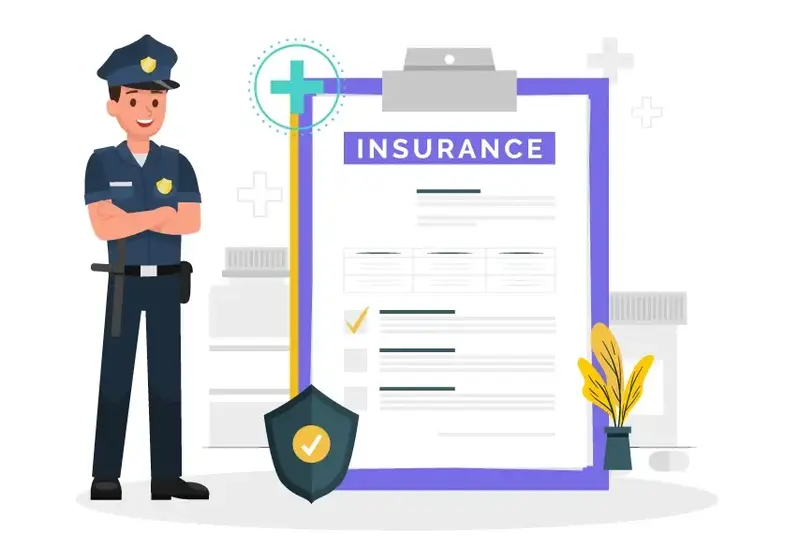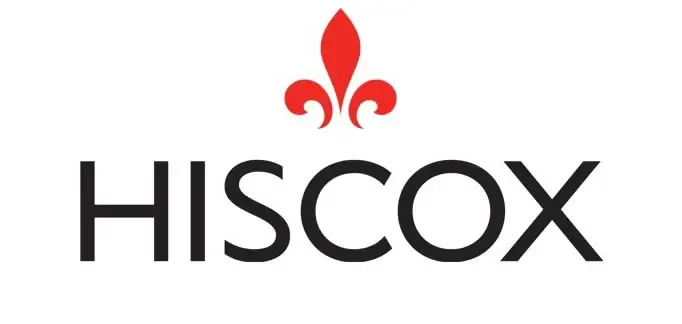Security company insurance Texas is vital in safeguarding businesses, individuals, and properties. However, the nature of their work exposes them to various risks and potential liabilities. That’s where security company insurance Texas comes into play. In Texas, like in many other states, security companies must have adequate insurance coverage to operate legally and responsibly.
In this article, we will examine what the security company insurance Texas is, types of security company insurance Texas, benefits of security company insurance Texas, legal and regulatory requirements in Texas, selecting the right security company insurance Texas policies, tips for managing security company insurance Texas costs, finding the right security company insurance Texas provider, and finally the top companies that provide the security company insurance Texas.
- What is Security Company Insurance?
- Types of Security Company Insurance Texas
- Benefits of Security Company Insurance Texas
- Legal and Regulatory Requirements in Texas
- Selecting the Right Security Company Insurance Texas Policies
- Tips for Managing Security Company Insurance Texas Costs
- Finding the Right Security Company Insurance Texas Provider
- Top Companies that Provide Security Company Insurance Texas
- Conclusion
- Security Company Insurance Texas FAQ
What is Security Company Insurance?
Running a security company has its fair share of risks and responsibilities. Ensuring the safety of both your clients and your security personnel is paramount, but it’s also essential to protect your business from potential liabilities. This is where security guard company insurance provides coverage for various situations.
General Liability Insurance for Security Guard Companies
General security company liability insurance is the foundation of any security guard company’s liability insurance coverage. It safeguards your business from claims arising due to bodily injury, property damage, or personal injury caused by your employees while on duty. This liability insurance coverage extends to incidents on client premises, such as accidents or property damage caused by your security personnel.
Cyber Insurance for Security Companies
In the digital age, cyber threats are a growing concern for businesses of all types, including security guard companies. Cyber insurance covers data breaches, cyberattacks, and other cyber-related incidents. This type of insurance helps with the costs associated with notifying affected parties, recovering lost data, and addressing legal liabilities arising from data breaches.
Security Guard Workers Compensation Insurance
Workers’ compensation insurance is crucial for any business with employees, and security guard companies are no exception. This coverage protects your guards financially if they get injured or fall ill while performing their duties. It helps cover medical expenses, lost wages, and rehabilitation costs, reducing the financial burden on your employees and business.
Getting Quotes and Customizing Your Coverage
When seeking security company insurance Texas quotes, you must provide accurate information about your business’s size, operations, and the number of guards you employ. This information helps insurance providers assess your risk profile and provide you with accurate quotes. Remember that each security company is unique, and your robust insurance coverage should be tailored to your unique insurance coverage needs.

In the world of security guard companies, safeguarding your clients and your business is paramount. Security company insurance Texas, including general security company liability insurance, workers’ compensation insurance, and cyber insurance, offers comprehensive general liability protection against various risks. By partnering with reliable insurance providers and customizing your coverage, you can ensure your business and personnel’s long-term success and security. Remember, investing in the right insurance coverage today can save you from significant financial setbacks in the future.
Types of Security Company Insurance Texas
Security companies often require a range of insurance coverage to protect their operations, employees, clients, and assets. The specific types of security company insurance Texas coverage a security company might need can vary depending on factors such as the nature of the services offered, the size of the company, and the local legal requirements. Here are some common types of security company insurance Texas:
- General Liability Insurance: This insurance covers claims related to bodily injury, property damage, and personal injury that might occur during your business operations. It protects against lawsuits and legal expenses resulting from such incidents.
- Commercial Auto Insurance: If your security company uses vehicles for patrolling or transporting personnel or equipment, you’ll need commercial auto insurance. It covers accidents, damage, and liability related to company-owned vehicles.
- Professional Liability (Errors and Omissions) Insurance: Also known as E&O insurance, this coverage is important if your security company provides consultation or advice to clients. It protects you against claims of negligence, errors, or omissions in your professional services.
- Workers’ Compensation Insurance: If you have employees, workers’ compensation insurance is usually legally required in many places. It covers medical expenses and lost wages for employees injured or ill while on the job.
- Property Insurance: This coverage protects your physical assets, such as office space, equipment, computers, and furniture, against damage or loss due to fire, theft, vandalism, and other covered events.
- Cyber Liability Insurance: If your security company handles sensitive client data or uses digital systems, cyber liability insurance can help cover costs related to data breaches, hacking incidents, and cyberattacks.
- Employee Theft and Crime Insurance: This coverage protects your company against financial losses from employee theft, fraud, or other criminal activities.
- Umbrella Liability Insurance: An umbrella policy provides additional liability coverage beyond the limits of your other liability insurance policies. It helps protect your company from large and unexpected liability claims.
- Fidelity Bond: Also known as employee dishonesty coverage, this insurance protects your company from financial losses resulting from fraudulent or dishonest actions by your employees.
- Directors and Officers (D&O) Insurance: If your security company has a board of directors or officers, D&O insurance can cover legal expenses and claims related to their decisions and actions.
- Terrorism Insurance: Depending on your location and the nature of your security services, you might want to consider terrorism insurance to protect against losses resulting from acts of terrorism.
It’s important to consult with an experienced security company insurance Texas professional or broker who understands the security industry to determine the specific security company insurance Texas coverage your company needs based on its unique circumstances and risks.
Benefits of Security Company Insurance Texas
Security company insurance Texas, like in any other location, offers a range of benefits specific to the security industry and the state’s legal and operational environment.

Here are some benefits of having insurance coverage for your security company insurance Texas:
- Legal Compliance: Operating a security company insurance Texas often requires various licenses and permits. Insurance is often a key requirement for obtaining and maintaining these licenses. Having the right security company insurance Texas coverage ensures you meet the legal requirements of the Texas Department of Public Safety and other relevant authorities.
- Reliable Protection Against Lawsuits: In the security industry, the risk of lawsuits due to perceived failures in security services, improper actions of security personnel, or other incidents is significant. Insurance coverage helps cover legal expenses and potential settlements, reducing the impact of legal actions on your company’s finances.
- Employee Safety: Security personnel often work in potentially hazardous situations. Workers’ compensation security company insurance Texas is crucial to provide financial support for employees who may suffer injuries or illnesses while performing their duties. It demonstrates your commitment to your employee’s safety and well-being.
- General Liability Protection: Security companies can face various liability risks, including claims of property damage, bodily injury, and allegations of negligence. General liability insurance, such as general liability and professional liability (errors and omissions) coverage, protects your company from the financial fallout of such claims and potential lawsuits.
- Property Protection: Security companies often have valuable equipment and assets essential for their operations. Property insurance helps safeguard your company’s physical assets, such as surveillance equipment, communication devices, and office equipment, against damage or loss.
- Reputation Management: Adequate insurance coverage lets your security company respond effectively to incidents and accidents. A well-handled incident, with security company insurance Texas covering damages and losses, helps preserve your company’s reputation and client relationships.
- Contractual Requirements: Many clients and contracts may require security companies to have specific insurance coverage before providing services. The necessary security company insurance Texas policies enable you to fulfil these requirements and secure valuable contracts.
- Customized Coverage: Insurance providers often offer options to tailor your coverage to the specific risks your security company faces. This ensures that you’re adequately protected against the unique challenges of your industry and your operational environment in Texas.
- Financial Stability: Unexpected incidents can lead to substantial financial losses. With security company insurance Texas coverage, your security company is better positioned to handle unexpected costs, ensuring the stability and longevity of your business.
- Business Continuity: In the aftermath of a significant event, such as a natural disaster, security company insurance Texas can facilitate faster recovery. It helps your security company repair or replace damaged assets and resume operations, minimizing downtime.
- Comprehensive Protection: By combining various types of security company insurance Texas coverage, you can create a comprehensive risk management strategy that addresses a wide range of potential risks your security company might encounter.
In Texas, as in any state, the benefits of security company insurance Texas is rooted in providing financial protection, legal compliance, risk management experience, and peace of mind. Consulting with insurance professionals who understand the security industry and Texas regulations can help you tailor coverage that suits your company’s needs.
Legal and Regulatory Requirements in Texas
Legal and regulatory requirements for security company insurance Texas can vary depending on their specific services, the nature of their operations, and the local regulations. Below are some general legal and regulatory considerations that security companies in Texas should be aware of:
- Licensing and Registration: Security companies and individuals working in the security industry in Texas are often required to be licensed and registered. The Texas Department of Public Safety (DPS) oversees private security insurance programs licensing. Different licenses are available for security officers, armed security officers, personal protection services officers, and private investigation companies. Licensing requirements typically include background checks, training, and application fees.
- Uniforms and Identification: Texas security personnel must wear uniforms that identify them as security officers. Additionally, they may need to carry and display proper identification while on duty.
- Use of Force: Security personnel must adhere to strict guidelines regarding the use of force. Texas law allows using force in self-defence or defence of others, but security officers must be trained in de-escalation techniques and the appropriate use of force.
- Training Requirements: Texas security and armed security officers must complete specific training programs approved by the DPS. Training covers legal and ethical considerations, the use of force, communication skills, and emergency response.
- Firearms Regulations: If your security company employs armed security officers, there are specific requirements for the possession and use of firearms. These requirements include training, background checks, and state and federal firearm laws compliance.
- Insurance: As mentioned earlier, security company insurance Texas coverage is a crucial aspect of operating a security company. In addition to general security company liability insurance, worker’s compensation insurance, and other types, your company may need to meet certain insurance requirements to maintain your license.
- Background Checks: Both security company employees and the company itself may be subject to background checks. This ensures that individuals with criminal records or other disqualifying factors are not involved in the security industry.
- Data Protection: If your security company handles sensitive client data or personal information, you must comply with relevant protection laws and regulations, such as the Texas Identity Theft Enforcement and Protection Act.
- Alarm System Licensing: If your security company offers alarm system installation and monitoring services, you may need to adhere to specific licensing requirements and regulations related to alarm systems.
- Contractual Agreements: Security companies often enter into contractual agreements with clients. It’s important to draft clear and comprehensive contracts that outline both parties’ scope of services, terms, responsibilities, and liabilities.
- Private Investigator Licensing: If your security company provides investigative services, such as background checks or surveillance, you may need to obtain a separate private investigator license.
It’s important to note that regulations can change over time, so it’s recommended to regularly check with the Texas Department of Public Safety and consult with legal professionals who specialize in security industry regulations to ensure your company’s compliance.
Selecting the Right Security Company Insurance Texas Policies
Selecting the right security company insurance Texas policies for your security company is a crucial decision that requires careful consideration of your company’s operations, risks, and legal requirements.

Here’s a step-by-step guide to help you choose the appropriate security company insurance Texas policies:
- Assess Your Risks: Identify the specific risks your security company faces. Consider factors such as the services you provide, the locations you operate in, the equipment you use, and the potential liability scenarios. This risk assessment will be the foundation for choosing the right insurance coverage.
- Research Legal Requirements: Understand the licensing and insurance requirements for security companies in Texas. Different types of security services may have varying insurance prerequisites. Research the regulations the Texas Department of Public Safety and other relevant authorities set.
- Consult an Insurance Professional: Work with an experienced insurance agent or broker specialising in the security industry and understanding the Texas regulatory landscape. They can help you navigate the complexities of insurance coverage and recommend policies that align with your unique insurance needs.
- Identify Essential Policies: Based on your risk assessment and discussions with your insurance professional, identify the essential security company insurance Texas policies for your security company. Common policies to consider include:
- General Liability Insurance: Covers third-party bodily injury and property damage claims.
- Professional Liability (Errors and Omissions) Insurance: Protects against negligence claims, errors, or omissions in your professional services.
- Workers’ Compensation Insurance: Provides coverage for employee injuries and illnesses sustained on the job.
- Commercial Property Insurance: Covers damage or loss of your business property and equipment. For business owners who own or rent physical spaces commercial insurance is one of the most common types of small business insurance security guards buy because of the different types of coverage it offers.
- Business Interruption Insurance: Helps cover lost income and expenses if your operations are disrupted due to a covered event.
- Consider Industry-Specific Policies: Depending on the nature of your security services, you might need industry-specific insurance coverage. For instance:
- Security Guard Insurance: Tailored coverage for security personnel and the risks associated with their duties.
- Cyber Liability Insurance: Important if you handle client data or use digital systems for your operations.
- Directors and Officers (D&O) Insurance: Relevant if you have a board of directors or officers responsible for decision-making.
- Evaluate Policy Limits and Deductibles: Decide on appropriate coverage limits (the maximum amount the insurer will pay) and deductibles (the amount you’re responsible for before insurance kicks in). Balance affordability with the level of general liability protection your company needs.
- Compare Quotes: Get quotes from multiple insurance providers to compare costs, coverage, and services. Remember, the cheapest option might not provide the best coverage for your security company’s unique needs.
- Review and Update: Regularly review your insurance coverage as your business evolves. Changes in services, locations, and equipment may necessitate policy adjustments.
- Review Exclusions and Endorsements: Carefully read policy documents to understand what is covered and excluded. Discuss endorsements (additional coverage options) that can be added to tailor policies to your specific needs.
- Maintain Records: Keep all insurance policy documents, correspondence, and claims information organized and easily accessible.
Choosing the right security company insurance Texas policies requires industry knowledge, risk assessment, and expert advice. Working closely with insurance professionals who understand the security industry and the regulations in Texas will help you create a comprehensive and tailored insurance portfolio that safeguards your business.
Tips for Managing Security Company Insurance Texas Costs
Managing security company insurance Texas costs is a critical aspect of running a successful business, which holds true for security companies. In an industry where risk mitigation is paramount, finding the right balance between comprehensive insurance coverage and cost-effectiveness can significantly impact your company’s financial health. Whether you’re a new startup or an established security firm, adopting strategic approaches to managing security company insurance Texas costs can help you protect your assets, maintain compliance, and ensure long-term sustainability.

Managing insurance costs for a security company in Texas requires strategic planning and an understanding of the various factors that impact premiums. Here are some tips to help manage and potentially reduce security company insurance Texas costs:
- Shop around and compare quotes
- Multiple Providers: Obtain quotes from several security company insurance Texas providers to compare coverage options and premiums.
- Specialized Brokers: Work with insurance brokers specializing in security companies, as they can often find better rates and tailored policies.
- Bundle policies
- Package Deals: Combine different types of insurance (e.g., general liability, workers’ compensation, and professional liability) into a single package to take advantage of multi-policy discounts.
- Risk management practices
- Employee Training: Implement comprehensive training programs for your employees to minimize accidents and incidents.
- Background Checks: Conduct thorough background checks on all employees to reduce liability risks.
- Safety Protocols: Establish and enforce strict safety protocols and procedures.
- Review coverage needs regularly
- Assess Annually: Review your security company insurance Texas needs annually to ensure you are not over-insured or under-insured.
- Adjust Coverage: Adjust coverage based on changes in your business operations, such as adding new services or reducing staff.
- Implement security measures
- Technology Upgrades: Invest in security technologies such as surveillance and alarm systems to reduce the likelihood of incidents.
- Incident Reporting: Maintain a system for promptly reporting and documenting incidents to mitigate potential claims.
- Maintain a good claims history
- Minimize Claims: Avoid filing small claims that can increase your premiums. Pay out-of-pocket for minor incidents when feasible.
- Prompt Reporting: Report claims promptly to avoid complications and additional costs.
- Employee health and safety programs
- Wellness Programs: Promote health and wellness programs to reduce workers’ compensation claims.
- Regular Health Screenings: Offer regular health screenings and vaccinations to employees to maintain a healthy workforce.
- Negotiate with insurers
- Leverage Relationships: Build and maintain good relationships with your security company insurance Texas providers to negotiate better rates.
- Renewal Negotiations: Negotiate your premiums at renewal time, especially if you have a good claims history.
By implementing these strategies, you can better manage and potentially reduce your security company insurance Texas costs while maintaining adequate coverage for your security company in Texas.
Sample Insurance Costs for Security Companies in Texas
Below is a table illustrating the average annual costs for different types of insurance for a mid-sized security company in Texas:
| Insurance Type | Coverage Amount | Average Annual Cost (USD) |
| General Liability Insurance | $1,000,000 | $1,200 – $2,500 |
| Professional Liability Insurance | $1,000,000 | $1,000 – $2,000 |
| Workers’ Compensation Insurance | Per employee | $500 – $1,500 per employee |
| Commercial Auto Insurance | Per vehicle | $1,000 – $3,000 per vehicle |
| Property Insurance | $500,000 | $800 – $2,000 |
| Umbrella Insurance | $1,000,000 | $1,000 – $2,500 |
The cost of insurance for security companies in Texas varies widely based on several factors, including the company’s size, the types of services provided, the level of coverage required, and the company’s claims history. On average, security companies can expect to pay between $500 to $3,000 annually for general liability insurance. In contrast, more comprehensive packages, including workers’ compensation, professional liability, and commercial auto insurance, can range from $5,000 to $15,000 annually. A small security company may pay $3,000 to $4,000 annually for a good general liability policy, but several factors help their provide the best price and coverage.
Finding the Right Security Company Insurance Texas Provider
Finding the right security company insurance Texas provider for a security company in Texas involves several considerations to ensure adequate coverage and compliance with state regulations. Here are some key factors to consider when choosing an insurance provider for a security company in Texas:
- Type of Coverage: Determine the specific types of insurance your security company needs. Common types include general liability, professional liability, workers’ compensation, and commercial auto insurance. Coverage for particular risks related to the security industry, like armed guard insurance, should also be considered if applicable.
- State Compliance: Ensure that the insurance provider is familiar with Texas regulations. This is crucial as Texas has specific requirements for security companies, including minimum insurance coverage standards.
- Cost of Premiums: Compare quotes from different providers to find competitive rates. Be cautious of unusually low premiums, which may indicate less coverage or a problematic claims process.
- Reputation and Financial Stability: Research the insurer’s reputation and financial stability. Check ratings through agencies like A.M. Best, which evaluates insurance companies based on their financial health and ability to pay claims.
- Claims Process: Understand the provider’s claims process. Choosing a provider with a straightforward and efficient method is essential, as timely handling of claims is crucial for business operations.
- Consultation and Advice: Some insurance providers offer risk management consulting and advice, which can be invaluable in mitigating risks specific to security operations.
- Local vs. National Providers: Decide whether a local or national provider suits your needs better. Local insurers might better understand Texas-specific issues, while national providers might offer more extensive resources.
- Bundling Options: Check if the provider offers the option to bundle different types of insurance for cost savings.
Research and due diligence are vital in selecting the right security company insurance Texas provider. Consider consulting with an insurance broker specialising in business and security industry coverage to help navigate these considerations.
Top Companies that Provide Security Company Insurance Texas
In the ever-evolving landscape of business operations, safeguarding assets and mitigating risks has become paramount. Security companies play a crucial role in maintaining safety and order, but they, too, are not immune to potential liabilities and unforeseen events. To fortify their resilience, security companies in Texas often turn to specialized insurance coverage tailored to their unique needs. Many security company insurance Texas providers are ready to offer comprehensive solutions catering to the specific challenges faced by security firms operating in the Lone Star State.
Here is a list of the best security company insurance Texas firms:
- CoverWallet Insurance
- Hiscox
- Brownyard Insurance
Let’s review the best security company insurance Texas firms in order:
CoverWallet Insurance

CoverWallet Insurance is an online insurance platform that simplifies the process of obtaining business insurance for small and medium-sized businesses. The platform offers a range of insurance products, including general liability, professional liability, workers’ compensation, and cyber liability insurance. CoverWallet Insurance was founded in 2015 and is based in New York City. CoverWallet Insurance works with top-rated insurance carriers to provide businesses with the coverage they need to protect their assets.
CoverWallet’s online platform makes it easy for businesses to obtain insurance coverage. Businesses can start by filling out a simple online application that takes only a few minutes. The application asks for basic information about the business, such as its name, industry, and location.
Once the application is submitted, CoverWallet’s technology platform analyzes the information provided and generates a list of insurance products that best meet the needs of the business. The platform presents the options to the business owner clearly and straightforwardly, allowing them to select the coverage they need and complete the purchase online.
Security Company Insurance Texas with CoverWallet Insurance
CoverWallet Insurance was a digital insurance platform that aimed to simplify buying and managing business insurance for small and medium-sized enterprises (SMEs). It was not a security company itself but provided security company insurance Texas solutions to various types of security businesses, including security companies.
Security companies typically require a range of insurance coverages to protect themselves from various risks associated with their operations. Some of the security company insurance Texas coverages that a security company might consider include:
- General Liability Insurance: This covers bodily injury, property damage, and personal injury claim that can arise during your security company’s operations. It provides coverage for third-party claims.
- Professional Liability Insurance (Errors and Omissions Insurance): This covers negligence claims, errors, or mistakes in your professional services. For security companies, this could relate to allegations of failure to provide adequate security services or mishandling of sensitive information.
- Workers’ Compensation Insurance: If your security company has employees, workers’ comp insurance is usually required by law.
- Property Insurance: This covers your business property (such as office space, equipment, and supplies) against damage or loss due to fire, theft, or vandalism.
- Commercial Auto Insurance: If your security company uses vehicles for patrolling or transportation, commercial auto liability coverage accidents and damages involving company vehicles.
- Cyber Liability Insurance: Given the technological aspects of security services, this insurance covers data breaches, hacking, and other cyber-related risks. It helps cover the costs associated with data breach response, legal fees, and customer notification.
- Umbrella Insurance: This provides additional liability coverage beyond the limits of your primary insurance policies, offering extra insurance protection in case of major claims.
It’s important to note that security company insurance Texas needs can vary depending on the size of your security company, the services you offer, your location, and other factors. Consulting with insurance professionals or brokers who understand the specific needs of security companies can help you tailor an insurance package that adequately protects your business.
To learn more about CoverWallet Insurance, you can review this article: CoverWallet Insurance
From this link you can visit CoverWallet Insurance‘s website: https://www.coverwallet.com/
CoverWallet Insurance Phone Number: (646) 844-9933
Hiscox

Hiscox is a well-known international specialist insurance company that offers a variety of insurance products tailored to the needs of businesses and individuals. The company was founded in 1901 and has since become a prominent player in the insurance industry, known for its focus on providing specialized coverage for unique risks.
It’s important to note that Hiscox is known for its specialization in niche markets and unique risks. The company often targets industries and sectors with specific insurance needs that standard insurance products may not adequately cover.
Security Company Insurance Texas with Hiscox
Hiscox is an international specialist insurance company that offers a wide range of insurance products tailored to the needs of security businesses and individuals. One of the areas in which Hiscox specializes is security company insurance Texas. Security company insurance Texas typically covers risks and liabilities associated with security-related businesses, such as security guard services, alarm system installation, surveillance services, etc.
It’s important to note that the specific insurance needs of a security company can vary based on factors like the size of the business, the types of services offered, the number of employees, and the geographical area of operation. Working with an insurance agent or broker who can help assess your company’s risks and tailor an insurance package that suits your needs is recommended.
To learn more about Hiscox, you can review this article: Hiscox
From this link you can visit Hiscox‘s website: https://www.hiscox.com/
Hiscox Phone Number: 1-866-283-7545
Brownyard Insurance

Brownyard Insurance is a well-known insurance agency specializing in coverage for niche markets and industries. Brownyard Insurance was known for offering insurance solutions primarily in the areas of security guard companies, private investigation firms, pest control operators, and the beauty and salon industry.
They are recognized for their tailored insurance programs catering to these specialized industries’ unique needs and risks. Brownyard Insurance has built a reputation for understanding the specific challenges businesses in these sectors face and providing them with comprehensive and customizable insurance coverage to help manage those risks.
Security Company Insurance Texas with Brownyard Insurance
Brownyard Insurance is a company that specializes in providing insurance solutions for security companies. Security companies often have unique risks and liabilities associated with their operations, which require specialized insurance coverage. Brownyard Insurance offers tailored insurance products to address these specific needs.
Security Company Insurance Texas typically includes various coverage options to protect security firms from potential risks and claims. Some common types of insurance coverage that Brownyard Insurance might offer to security companies include:
- General Liability Insurance covers third-party bodily injury, property damage, and related legal expenses. This can be important for security companies if a client or someone else is injured or their property is damaged due to the security company’s actions.
- Workers’ Compensation Insurance: If security companies have employees, workers’ compensation insurance is often required by law.
- Property Insurance: This coverage protects the physical assets of a security company, such as their office space, equipment, and supplies, from various perils like fire, theft, and natural disasters.
- Professional Liability (Errors and Omissions) Insurance: This coverage protects security companies from claims of professional negligence or mistakes in their services. It can be particularly important if a security company’s actions lead to financial losses for its clients.
- Cyber Liability Insurance: Given the increasing reliance on technology, security companies may also need coverage to protect against data breaches, cyberattacks, and other cyber risks.
- Crime Insurance: This type of insurance can protect security companies against losses resulting from employee theft, embezzlement, or other criminal activities.
- Umbrella Liability Insurance: This provides additional liability coverage beyond the limits of the underlying general liability or professional liability policies. It helps protect against catastrophic claims that could exceed the limits of those primary policies.
- Auto Insurance: If the security company uses vehicles for its operations, commercial auto insurance is necessary to cover accidents, property damage, and injuries related to using these vehicles.
Brownyard Insurance would work with security companies to assess their specific risks and needs and then tailor insurance policies that provide appropriate coverage for those risks. Security companies must work closely with their security company insurance Texas provider to ensure they have the right coverage to protect their business and assets from potential liabilities.
To learn more about Brownyard Insurance, you can review this article: Brownyard Insurance
From this link you can visit Brownyard Insurance‘s website: https://brownyard.com/
Brownyard Insurance Phone Number: 800-645-5820
Conclusion
In conclusion, securing adequate insurance coverage for your security company in Texas is essential in protecting your business, clients, employees, and assets. The dynamic nature of the security industry, coupled with potential risks and liabilities, underscores the importance of comprehensive security company insurance Texas policies tailored to your company’s unique needs. By partnering with a reputable security company insurance Texas provider and carefully considering coverage options such as general liability, professional liability, workers’ compensation, and property insurance, you can ensure that your security company is well-prepared to navigate unforeseen challenges and confidently maintain its operations.
Security Company Insurance Texas FAQ
When considering security company insurance Texas for a security company in Texas, it’s essential to understand the specific needs and risks associated with the industry. From general liability to worker’s compensation and even specialized coverages for armed professional security guards, navigating the maze of options can be daunting. This FAQ section addresses common queries and concerns, providing clear, practical advice to help Texas security business owners make informed decisions about their insurance coverage. Whether you’re just starting or looking to review your existing policy, the following information will serve as a valuable guide.
What is the minimum insurance requirement for a security company in Texas?
In Texas, security companies must meet specific insurance requirements to operate legally. These requirements include:
– A minimum limit of $100,000 per occurrence for bodily injury and property damage.
– There is a minimum limit of $50,000 per occurrence for personal injury.
– A total aggregate minimum of $200,000 for all occurrences.
These requirements ensure that a security company has adequate coverage for any damages or injuries that might occur during its operations.
How can I determine the right insurance plan for my security company?
To select the best insurance plan, assess your specific needs, such as the size of your business, types of services offered, and potential risks. Consult with an insurance provider specializing in coverage for security companies in Texas.
What safety practices should security companies implement to reduce insurance risks?
Implementing safety practices like regular employee training on security protocols, maintaining equipment properly, and conducting thorough background checks can minimize risks. These practices enhance safety and demonstrate a commitment to risk management.
How can enhancing business operations positively impact insurance coverage for security companies?
Improving business operations by investing in surveillance technology, hiring trained security personnel, and maintaining accurate records can lower insurance premiums. Insurers view well-managed security companies as lower risk, resulting in more favourable coverage terms.






















